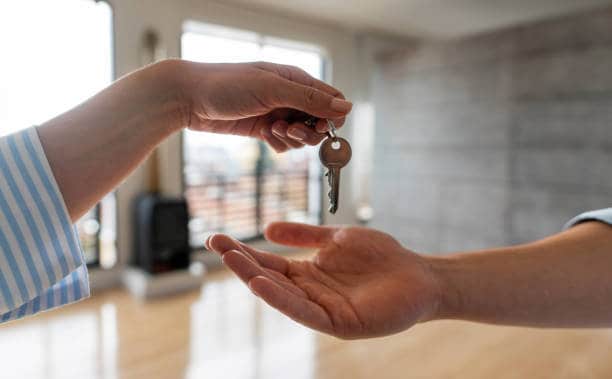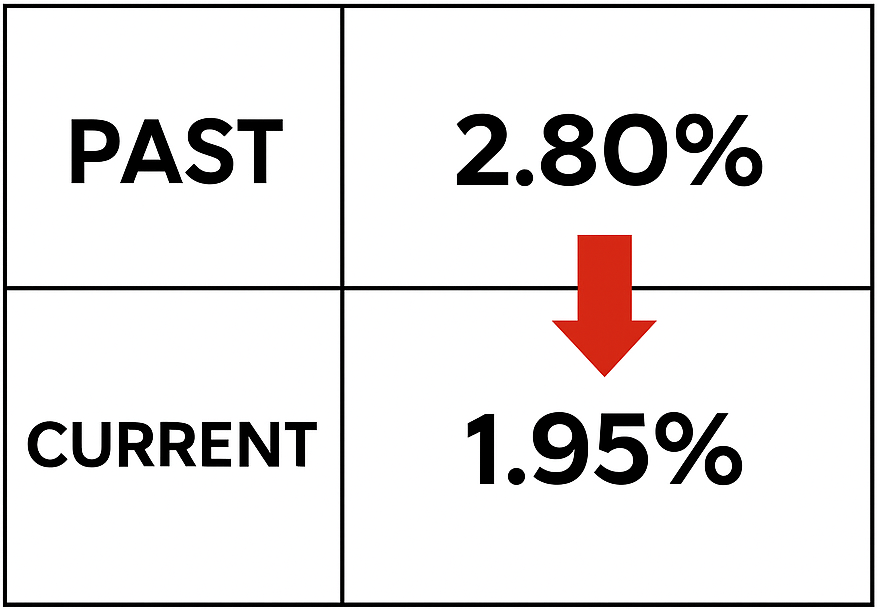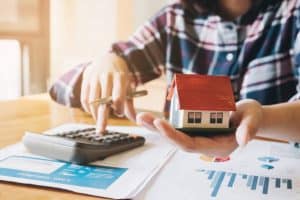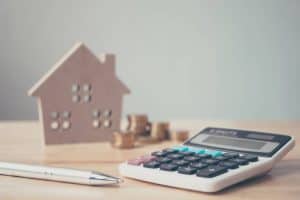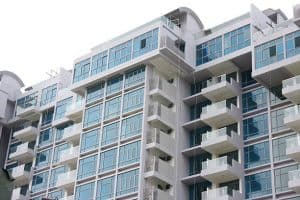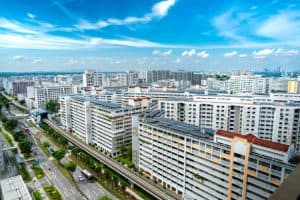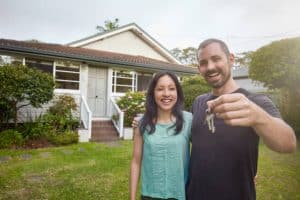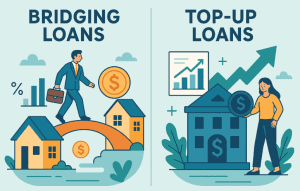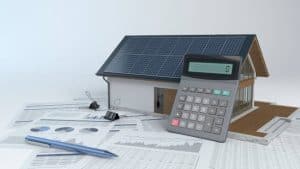Thinking of buying a home in Singapore as a foreigner or part of a mixed couple? You’re definitely not alone. With all the rules on HDB eligibility, condo restrictions, and ABSD, the process can feel confusing fast.
This 2026 guide breaks everything down clearly—what you can buy, how foreigners get property loans in Singapore, and the best steps to take if you’re planning to settle down here. Whether you’re looking at a private condo, wondering about the Non-Citizen Spouse Scheme, or trying to figure out your stamp duty, this guide is for you.
Who Is Considered a Foreigner Under Singapore Property Laws?
If you’re planning to buy a home in Singapore and you’re not sure where you stand legally—you’re not alone. Whether you’re holding a work pass, PR status, or just married to a Singaporean, the rules around property ownership differ quite a bit. Let’s clear it up.
Definitions Under the Residential Property Act (RPA)
In Singapore, property ownership rules are defined by the Residential Property Act. Under this law, a foreigner refers to anyone who is not a Singapore Citizen (SC) or Permanent Resident (PR). That includes holders of work passes, long-term visit passes, and even Dependant Pass holders.
This classification matters because it directly affects what kind of mortgage loan in Singapore you can apply for, what type of homes you’re allowed to buy, and whether you’ll get slapped with hefty Additional Buyer’s Stamp Duty (ABSD).
Expert tip: If you’re on the path to PR, it might be worth timing your purchase. PRs enjoy better access to HDB resale flats and lower stamp duties than foreigners.
Key Differences Between SC, PR, and Foreign Buyer Status
Here’s a quick breakdown of what each group can (and can’t) buy:
- Singapore Citizens (SCs) can buy BTOs, resale HDBs, ECs, and all types of private property.
- Permanent Residents (PRs) can buy resale HDBs (with another PR or SC), resale ECs (after 5 years), and private properties.
- Foreigners are limited mainly to private condos or commercial property in Singapore, unless they’re buying jointly with a Singaporean spouse under the Non-Citizen Spouse Scheme.
So if you’re wondering “can foreigners buy HDB?” — the short answer is, not directly (but there are workarounds if you’re married to a citizen).
What Properties Fall Under Restricted vs. Non-Restricted Categories
Singapore classifies property types into “restricted” and “non-restricted” categories. Understanding this helps you know your options right away:
Property Types Foreigners Can and Cannot Buy in Singapore (2025 Update)
| Category | Examples | Can Foreigners Buy? |
|---|---|---|
| Restricted | HDB flats, landed homes (except Sentosa Cove), shophouses | Not without special approval |
| Non-Restricted | Private condos, strata-titled apartments, commercial properties | Yes, no approval needed |
So if you’re a foreigner looking at condo loans in Singapore or a private property loan, you’re in the clear—no special permissions required. But landed property? That’s another story entirely, and usually out of reach unless you’re PR and have SLA approval.
What Property Can Foreigners Buy in Singapore (2026 Update)?
If you’re a foreigner looking to buy a home in Singapore, the first thing to know is this: you do have options—just not all of them. Depending on your residency status, some properties are wide open to you, while others are heavily restricted. Here’s a breakdown of what you can (and can’t) buy.
Condominiums and Apartments: The Most Accessible Option
This is by far the most straightforward choice. Private condominiums and strata-titled apartments are fully open to foreign buyers—no special permissions needed. You can buy, sell, rent out, and even co-own with another foreigner or Singaporean spouse.
Most foreigners start here because:
- It’s hassle-free (no SLA approval needed)
- There’s a wide range of financing options
- It holds long-term value in high-demand areas
If you’re comparing mortgage packages, you can check out the best home loan rates in Singapore or use this mortgage loan repayment calculator to get an estimate of your monthly costs.
If you’re planning to rent the unit out while working in Singapore, look at developments near MRT lines or business hubs—they attract better tenants and rental yields.
Executive Condominiums (ECs): Can Foreigners or PRs Buy Them?
ECs are a bit trickier. These are public-private hybrid properties that start off with HDB-style ownership rules and “privatise” after 10 years.
- Foreigners cannot buy new ECs directly from developers
- You can only buy ECs on the resale market if they are fully privatised (after the 10-year mark)
- PRs, however, can buy resale ECs after the 5-year Minimum Occupation Period (MOP)
If you’re a PR thinking of entering the EC market, it’s worth reviewing your housing loan options in Singapore early—especially if you want to beat rising mortgage interest rates in Singapore.
Landed Property: Sentosa Cove Exception and SLA Permissions
This is where things get restrictive. Foreigners generally cannot buy landed homes in Singapore unless:
- It’s a landed house on Sentosa Cove, which is the only area where foreigners are allowed to purchase landed residential property
- You apply for and are granted special approval from the Singapore Land Authority (SLA)—which is rare and usually reserved for very high-net-worth individuals contributing significantly to the local economy
Heads up: Even if you’re approved, landed property loans typically require more upfront cash, and ABSD rates for foreigners are steep.
Here’s a quick recap to make it clearer:
What Types of Property Can Foreigners Buy in Singapore? (2025 Summary Table)
| Property Type | Foreigners Eligible? | Notes |
|---|---|---|
| Private Condo / Apartment | Yes | Most accessible; no restrictions |
| Executive Condominium (new) | No | Only Singapore Citizens and PRs |
| Executive Condominium (resale) | Yes (after 10 years) | Fully privatised EC only |
| Landed Property | Usually No | Exception: Sentosa Cove or with SLA approval |
| HDB Flat | No | Only under special schemes like Non-Citizen Spouse Scheme |
Can Foreigners Buy HDB Flats or BTOs in Singapore?
This is probably the most common question we hear: Can foreigners buy HDB flats? The short answer? Not on their own. But there are exceptions—especially if you’re married to a Singaporean or already hold PR status. Here’s how it works in 2026.
Who Qualifies Under the Non-Citizen Spouse Scheme (NCS)?
If you’re a foreigner married to a Singapore Citizen (SC), you might be eligible to buy a resale HDB flat under the Non-Citizen Spouse Scheme (NCS).
To qualify:
- You must be legally married to a Singapore Citizen
- The Singaporean must be at least 35 years old
- The couple must buy a resale flat (BTOs are not available under NCS)
- The foreign spouse is listed as an essential occupier, not an owner
It’s a great option for couples looking for affordability and stability in the long term. Just remember—the foreign spouse doesn’t own the flat, which means no legal share in the property.
If you plan to co-own or upgrade later, it’s worth speaking to a mortgage broker in Singapore to understand your options better.
Personal tip: Always check if you qualify for any HDB grants through your Singaporean spouse—every dollar counts when you’re starting out.
Can PRs or Foreign Spouses Buy a Resale HDB Flat?
Permanent Residents (PRs) enjoy more flexibility than foreigners, but still face some limits:
- PRs can only buy resale HDB flats (not BTOs)
- You must buy with another PR (both with at least 3 years of PR status), or with a Singapore Citizen spouse
- PRs are not eligible to buy under the Single Scheme
- No grants are given to PR-PR households, but CPF housing grant is available if you’re buying with an SC
If you’re looking at resale flats, make sure to calculate your financing ahead of time. Use a mortgage loan repayment calculator to estimate monthly costs, or explore options for an HDB home loan if you’re buying with your SC spouse.
HDB Eligibility for Mixed-Nationality Couples with Children
Got a Singaporean child? That opens another door.
If a Singaporean parent and a foreign spouse form a family nucleus with at least one Singaporean child, they may qualify under the Public Scheme to buy a resale HDB flat—even if the foreign spouse isn’t a PR.
This is particularly helpful for younger couples building their life in Singapore. It also makes long-term planning easier, especially if you’re considering a path to PR or even citizenship later.
Expert insight: Buying a resale flat with a Singaporean child in the nucleus might also open the door to housing grants—even if you’re not eligible under typical schemes.
What Taxes and Stamp Duties Do Foreign Buyers Pay?
Buying property in Singapore as a foreigner isn’t just about the sale price—you’ll also need to budget for stamp duties, taxes, and annual costs. If you’re not prepared, these can really catch you off guard. Here’s what you need to know in 2026.
Buyer’s Stamp Duty (BSD) Rates for 2026
Buyer’s Stamp Duty (BSD) applies to all property buyers in Singapore—locals and foreigners alike. It’s calculated based on the property’s purchase price or market value (whichever is higher).
As of 2026, BSD rates are:
Stamp Duty and Property Tax Rates for Foreigners Buying Property in Singapore (2025)
| Tax Type | Who Pays | Rate |
|---|---|---|
| Buyer’s Stamp Duty (BSD) | All buyers | 1–6%, tiered |
| Additional Buyer’s Stamp Duty (ABSD) | Foreigners | 60% |
| ABSD for SC + Foreigner | Joint purchase | Up to 60% (remission possible) |
| Annual Property Tax | All property owners | 0–36% based on AV |
ABSD Exemptions Under Free Trade Agreements (FTAs)
Here’s a lesser-known advantage: not all foreigners are subject to the 60% ABSD.
Thanks to Free Trade Agreements (FTAs), citizens from five countries are given the same stamp duty treatment as Singapore Citizens or Permanent Residents when buying residential property.
ABSD-Exempt Countries Under Singapore FTAs
| Country | ABSD Status | Legal Basis |
|---|---|---|
| United States | Exempt | U.S.–Singapore FTA |
| Switzerland | Exempt | EFTA |
| Norway | Exempt | EFTA |
| Iceland | Exempt | EFTA |
| Liechtenstein | Exempt | EFTA |
If you’re from one of these countries, you’ll enjoy:
- Zero Additional Buyer’s Stamp Duty on your first residential property
- The ability to purchase on similar terms as PRs (or even SCs, depending on context)
Not sure how much ABSD you’ll need to pay? Use this BSD & ABSD calculator to estimate your total tax cost based on your nationality and ownership structure.
If you’re buying jointly with someone who is not from one of these FTA countries (e.g. a foreign spouse), only your share may be exempt.
Speak to a mortgage broker in Singapore or a conveyancing lawyer to structure your purchase correctly and avoid costly mistakes.
Additional Buyer’s Stamp Duty (ABSD) for Foreigners and Mixed Couples
This is the big one for foreigners. As of the latest cooling measures:
- Foreigners pay 60% ABSD on residential property purchases
- Singaporean + Foreigner couples buying jointly may be eligible for an ABSD remission if they meet eligibility criteria
For instance, if you’re a foreigner buying a $2 million condo, that’s an additional $1.2 million in ABSD—yes, just in tax.
If you’re unsure how ABSD applies to you, it’s smart to speak to a mortgage broker in Singapore early on. They can help structure your purchase to potentially reduce tax impact or suggest alternative options.
Expert insight: Some mixed-nationality couples choose to buy under the Singaporean spouse’s name alone to qualify for remission—just be clear on ownership implications.
Property Tax and Maintenance Costs to Expect Annually
Beyond the purchase, you’ll need to budget for annual property tax. This is calculated based on the Annual Value (AV) of the property:
- Owner-occupied residential properties: 0–32% (progressive based on AV)
- Non-owner-occupied (investment/rental): 12–36%
For example, a high-end condo rented out at $60,000 AV could incur ~$15,000 in yearly property tax.
Also factor in:
- Maintenance fees for condos (typically $300–$800/month)
- Fire insurance premiums
- Sinking fund contributions
These may not seem major upfront but can add up over the years. Use a home loan repayment calculator to better understand your total monthly and yearly obligations.
Can Foreigners Get a Home Loan in Singapore?
Yes—foreigners can apply for home loans in Singapore, but with tighter loan limits, fewer perks, and stricter checks. Whether you’re buying a condo or a resale EC, it’s crucial to understand how financing works, especially if you’re new to local banking terms like LTV, TDSR, or IPA. Here’s what you need to know.
Loan-to-Value (LTV) Limits and Interest Rate Trends in 2026
In 2026, Loan-to-Value (LTV) limits remain conservative for foreign buyers:
- Up to 75% LTV if you have no outstanding loans
- Up to 45% or less if you already have an existing property loan
- A minimum 5% cash downpayment is required (no CPF allowed for foreigners)
Foreigners also typically need a larger cash buffer—banks tend to be stricter with documentation and financial checks.
As for mortgage interest rates in Singapore, most banks are now offering:
- Floating rate packages from ~3.4%–4.2%
- Fixed rate packages from ~3.8%–4.5%
You can compare the best home loan rates in Singapore or explore fixed and floating options from banks like DBS, UOB, or OCBC.
Expert tip: Consider refinancing after 2–3 years if rates drop. A mortgage loan refinancing strategy could save you thousands long term.
Total Debt Servicing Ratio (TDSR) and Bank Loan Eligibilit
The Total Debt Servicing Ratio (TDSR) caps your monthly debt repayment at 55% of your gross monthly income. That includes:
- Housing loans
- Car loans
- Credit card debts
- Personal loans
For foreigners, banks may also apply a “haircut” to overseas income—often discounting your stated salary by 20–30% to buffer against currency and repatriation risks.
Here’s where working with a mortgage broker in Singapore helps. They can assess your financial profile across multiple banks to find the best fit—especially if your income is overseas or you’re self-employed.
One of our readers got rejected at two major banks due to overseas income but got approved via a broker working with a smaller local lender. Always compare widely.
Getting In-Principle Approval (IPA) or Buying via Power of Attorney
Before you even start viewing properties, it’s smart to secure an In-Principle Approval (IPA). It shows how much you’re eligible to borrow and speeds up the buying process.
For foreigners:
- IPA validity: Usually 30–90 days
- Required documents: Passport, income slips, tax statements, employment details
- Best to get this before placing any Option to Purchase (OTP)
Not in Singapore physically? No problem—you can buy via Power of Attorney (POA). This lets a lawyer or trusted rep act on your behalf for signing the sale agreement or mortgage documents. Just ensure the POA is registered with HDB or SLA, depending on the property.
Get your IPA and POA sorted early—especially if you’re planning to buy remotely or on a tight timeline.
Can a Singaporean and Foreigner Buy a Property Together?
Yes, a Singaporean and foreigner can buy property together, but what you’re allowed to buy—and how much tax you’ll pay—depends heavily on the type of property.
Whether you’re newly married or planning for the future, here’s what to expect when purchasing as a mixed-nationality couple in 2026.
HDB Flat Rules for SC–Foreigner Couples
If one partner is a Singapore Citizen and the other is a foreigner (non-PR), you can only buy a resale HDB flat—and only under specific schemes.
The most common option is the Non-Citizen Spouse Scheme (NCS), which lets you:
- Purchase a resale flat with the SC as the owner and the foreign spouse listed as an occupier
- Qualify for some HDB grants, if income criteria are met
- Not co-own the flat legally (foreign spouse holds no ownership share)
If you’re considering this route, do factor in financing. Some buyers use an HDB home loan if they qualify, while others go for a bank loan if loan ceilings are too low.
If your long-term goal is co-ownership, consider private property instead—HDB doesn’t allow joint ownership for SC–Foreigner couples unless the foreigner becomes a PR.
Private Property Rules for Mixed-Nationality Ownership
For private condos or apartments, things are more flexible. A Singaporean and foreigner can legally co-own private property—whether freehold or leasehold—with no restrictions on joint names.
However, there’s a catch: ABSD (Additional Buyer’s Stamp Duty).
- The default ABSD for foreigners is 60%
- If buying jointly, the higher ABSD rate applies unless you apply for ABSD remission
To qualify for ABSD remission as a married couple:
- One party must be a Singapore Citizen
- Both must be listed as buyers and owners
- You must not own any other residential property at the time of purchase
- You must live in the property for at least 3 years
If you’re unsure how the numbers work out, it’s best to compare options using a BSD & ABSD calculator and explore bank loan interest rates in Singapore before locking anything in.
Expert insight: ABSD remission isn’t guaranteed—get legal advice and loan approval first before signing anything.
Implications on Loan Eligibility, Ownership Shares & ABSD
When applying for a home loan as a mixed couple, banks will assess both parties’ income, credit profile, and nationality.
- Some banks may take a haircut on the foreigner’s income
- CPF usage is only allowed for the Singaporean spouse (foreigners can’t use CPF)
- Ownership shares must be declared upfront for loan and legal purposes
A split like 99–1 (where the Singaporean owns 99% of the property) is sometimes used to minimise ABSD or facilitate future decoupling. However, this needs to be set up properly and may affect future loan refinancing or resale.
To explore financing setups tailored to mixed-nationality couples, it helps to speak with a mortgage consultant in Singapore who can walk you through the loan approval process and flag tax issues early on.
Step-by-Step Guide to Buying Property as a Foreigner or Mixed Couple

Buying a home in Singapore as a foreigner—or with a foreign spouse—can feel overwhelming. But once you understand the rules and line up your financing, the process is actually quite structured. Here’s a clear, step-by-step guide to help you get started in 2026.
Step 1 – Check Eligibility and Understand What You Can Buy
Before viewing any units or calling agents, confirm what you’re actually eligible to purchase:
- Foreigners can buy private condos, apartments, and commercial properties
- Mixed-nationality couples may qualify for resale HDB flats under the Non-Citizen Spouse Scheme
- Landed properties and BTOs are generally off-limits unless specific criteria are met
Not sure where you stand? Start by reviewing Ace Mortgage’s guide to private property loans or HDB housing loan eligibility if you’re buying with a Singaporean partner.
Personal tip: If you’re not sure whether to buy under one or both names, speak to a broker before committing—it affects both tax and loan approval.
Step 2 – Secure Financing, Calculate Duties, and Budget Properly
With eligibility sorted, it’s time to plan your finances.
- Apply for an In-Principle Approval (IPA) from a bank or mortgage broker—it tells you how much you can borrow
- Budget for upfront costs like Option Fee, Buyer’s Stamp Duty (BSD), and Additional Buyer’s Stamp Duty (ABSD) (up to 60% for foreigners)
- Use a mortgage loan repayment calculator to estimate your monthly payments based on current interest rates
You can also compare rates across different banks—check out DBS, OCBC, or UOB for their latest packages.
Expert insight: Don’t forget legal fees, valuation fees, and property tax. A good broker can help you factor in all these hidden costs before you commit.
Step 3 – Make an Offer, Pay Option Fee, and Appoint a Lawyer
Once you’ve found the right unit and your loan is ready, you can move forward with the purchase:
- Negotiate and agree on the sale price with the seller
- Pay the Option to Purchase (OTP) fee—usually 1% of the agreed price
- Within 14 days, exercise the OTP and pay the remaining deposit (typically 4%)
- Appoint a conveyancing lawyer to handle legal paperwork, title checks, and stamp duty submission
If you’re overseas or can’t attend appointments in person, consider setting up a Power of Attorney (POA) to act on your behalf—especially helpful for foreign buyers not based in Singapore.
Once everything is signed, stamp duties are paid, and the sale is completed, you’ll get the keys—and officially become a property owner in Singapore.
Strategies to Reduce Costs and Maximise Eligibility
Let’s face it—buying property in Singapore as a foreigner or part of a mixed couple isn’t cheap. But with the right strategies, you can save tens (or even hundreds) of thousands by reducing taxes, improving loan eligibility, or unlocking access to government-backed housing schemes. Here are a few smart ways to play your cards right in 2026.
ABSD Avoidance Techniques for Married Couples
ABSD (Additional Buyer’s Stamp Duty) is the biggest cost hurdle for foreign buyers—currently at 60%. But if you’re married to a Singapore Citizen, there’s hope.
You may qualify for ABSD remission if:
- You’re legally married to an SC
- You’re buying your first and only property
- Both names are listed as joint owners
- You intend to live in the home for at least 3 years
If you qualify, the 60% ABSD can be fully waived—a massive savings. It’s still best to run the numbers using a BSD & ABSD calculator to double-check your position before committing.
Expert tip: In some cases, buying under the Singaporean spouse’s name only can avoid ABSD—but this means sole legal ownership. Know your risks.
Forming a Family Nucleus to Unlock HDB Eligibility
If you’re hoping to buy a resale HDB flat and you or your spouse isn’t a citizen, consider this: having a Singaporean child can unlock eligibility under HDB’s Public Scheme.
This lets you:
- Buy a resale HDB flat even if one spouse is a foreigner
- Tap into CPF grants (if the citizen spouse is eligible)
- Build long-term housing stability while your partner transitions to PR or citizenship
You can explore options under the Non-Citizen Spouse Scheme or check if you qualify for an HDB loan based on income and age.
Personal tip: The “family nucleus” rule can work even for single parents with a Singaporean child—don’t overlook it!
When to Use a Mortgage Broker or Property Agent Strategically
With tighter Loan-to-Value (LTV) rules and income cuts applied to foreigners, getting loan approval isn’t always straightforward. That’s where a mortgage broker in Singapore really shines.
Why it matters:
- Brokers have access to multiple banks and exclusive rates
- They know which lenders are more flexible for foreigners or mixed-income profiles
- They help you prep for In-Principle Approval (IPA) without damaging your credit score
Property agents can also help you spot undervalued listings, submit letters of appeal for SLA approval (in rare cases), or secure better negotiation terms.
Expert insight: We’ve seen clients save over $25,000 just by switching to a better mortgage package found by a broker—worth it.
Why Do Foreigners Still Buy Property in Singapore?
With sky-high ABSD rates and tight restrictions, it’s a fair question—why would any foreigner still choose to buy property here? And yet, every year, thousands do. From long-term residents to global investors, Singapore continues to be one of the most sought-after property markets in Asia. Here’s why.
Strong Capital Appreciation, Safety, and Legal Certainty
Singapore’s property market is known for being stable, tightly regulated, and resilient—even during global downturns. Foreign buyers are often drawn by:
- Strong long-term capital appreciation (especially in Core Central Region condos)
- Clear, pro-landlord legal structures
- Transparent, corruption-free systems
- High rental demand in districts near business hubs and international schools
If you’re exploring opportunities, start by reviewing the latest mortgage rates in Singapore or speak to a mortgage consultant to weigh your entry points.
Personal view: Peace of mind is priceless. Even if taxes are higher, many foreigners choose Singapore for its long-term security and reliability.
Using Property Investment to Support PR/Citizenship Plans
While buying property doesn’t directly guarantee Permanent Residency (PR) or citizenship, it can still help strengthen your case—especially when combined with:
- A stable long-term job
- Family ties (e.g. Singaporean spouse or child)
- Consistent financial contribution (property tax, income tax, etc.)
Owning a home here signals commitment. It shows that you’re rooted and invested in Singapore’s future. If you’re working towards PR, building property ownership into your plan isn’t just practical—it’s strategic.
Just be sure to choose wisely. If you’re planning to hold long-term, use a mortgage loan repayment calculator to model your affordability under different loan packages.
Exploring Alternatives Like Commercial Property or Shophouses
If residential ABSD puts you off, here’s another route: commercial and mixed-use properties.
- Foreigners can freely buy commercial property in Singapore (e.g. offices, shops, warehouses)
- No ABSD or TDSR rules apply—only Buyer’s Stamp Duty (BSD)
- These assets can offer both rental income and capital growth
Shophouses, in particular, have seen major investor interest in recent years. They’re rare, beautifully preserved, and often zoned for mixed-use, making them attractive for boutique businesses and long-term holding.
To explore this route, you can view options and interest rates for Singapore commercial property loans.
Expert tip: Commercial properties usually require higher downpayments—but you avoid the 60% ABSD. It’s a viable alternative for serious investors.
Frequently Asked Questions (FAQs)

Can Foreigners Buy Freehold vs. Leasehold Property in Singapore?
Yes, foreigners can purchase both freehold and leasehold private properties in Singapore—typically condos and apartments. There’s no restriction based on lease type, as long as the property isn’t landed or governed under restricted categories.
Can Foreigners Inherit or Co-Own HDB Property with Locals?
Foreigners cannot co-own HDB flats unless they are married to a Singaporean and qualify under the Non-Citizen Spouse Scheme. Even then, the foreign spouse is listed only as an occupier, not an owner.
If a foreigner inherits an HDB flat but does not meet eligibility conditions, they will typically be required to sell it within a set timeframe.
For full ownership flexibility, private property is the safer route for mixed-nationality couples.
Do Property Investments Help with PR or Citizenship Applications?
Buying property alone doesn’t grant PR or citizenship, but it can strengthen your profile—especially if paired with a stable job, local family ties, and consistent tax contributions.
It shows commitment to living and investing in Singapore long-term. Many foreigners on this path speak with a mortgage broker to plan their financing and property strategy early on.
Conclusion: Your Next Steps as a Foreigner or Couple Buying Property
Whether you’re buying solo as a foreigner or planning a home with your Singaporean partner, the property journey in Singapore isn’t impossible—it just takes clarity, planning, and the right support. By now, you should have a solid understanding of what’s allowed, what’s restricted, and how to navigate taxes, loans, and eligibility rules.
Here’s how to move forward confidently:
When to Speak to a Mortgage Broker or Lawyer for Help
If you’re unsure about your loan eligibility, stamp duty liabilities, or joint ownership setup, don’t guess—speak to a professional.
- A mortgage broker in Singapore can help you compare home loan rates, secure In-Principle Approval (IPA), and structure your financing—especially if you’re applying with overseas income or as a mixed-nationality couple.
- A conveyancing lawyer ensures that your ownership, ABSD remission, and legal documents are done right—particularly important if you’re buying under special schemes or with a Power of Attorney (POA).
Personal tip: Engaging a broker early often saves more than just time—it can save you tens of thousands in interest and tax.
What Documents to Prepare for a Smooth Transaction
Be prepared with these key documents when applying for a mortgage loan in Singapore:
- Passport and employment pass (for foreigners)
- Marriage certificate (if applying jointly)
- Proof of income (e.g. payslips, tax returns, bank statements)
- Proof of savings for downpayment
- In-Principle Approval (IPA) letter from your lender
Having these ready can help speed up approvals and reduce stress during the purchase process.
Resources and Tools for Comparing Loans, Duties, and Grants
Ready to crunch the numbers? These tools can help:
- Mortgage loan repayment calculator – estimate monthly instalments and plan your budget
- BSD & ABSD calculator – see how much stamp duty you’ll pay as a foreigner or mixed couple
- Compare home loan rates in Singapore – view the latest packages from DBS, UOB, OCBC and more
And if you’re still deciding between HDB vs private property, or weighing fixed vs floating rates, don’t hesitate to reach out for personalised guidance.
Buying a home is one of the biggest decisions you’ll make—let’s help you make it wisely.

